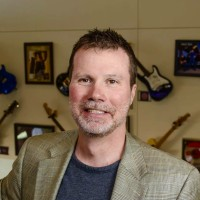Tagged: “Dr. Robert Enright”
If I cannot offer this “moral love” or agape to the one who hurt me, does this mean that I have not forgiven?
No, it does not mean that at all. Aristotle makes a distinction between Essence and Existence. Essence is the core meaning of any object or concept. The highest Essence of forgiveness is to offer this moral love or agape to the other person. Existence in terms of forgiveness is how you express now that forgiveness to the other person. You might be able to reduce some resentment right now. If you can do that as you commit to do no harm to the other, you have begun the process of forgiveness. You have not reached the highest Essence of forgiveness, but you are expressing it to the best of your ability now. Here is a sports analogy to try to make this clearer. Suppose you are playing basketball and you are shooting free-throws. You make 4 out of 10 shots. This is your Existence (how you behave now) at the free-throw line. The Essence of basketball is to successfully make 10 out of 10 shots. Even though you are not matching the perfect Essence of free-throw shooting, you are playing basketball. It is similar with forgiveness. Even if you cannot offer complete forgiveness in terms of agape love, you still are forgiving as you commit to do no harm to the other and as you work in reducing resentment toward that person.
You say that to forgive is to offer “moral love” to another person. What exactly is moral love? I don’t think I can reach that high with my partner at this point.
Moral love, or agape in the ancient Greek, is a deliberate caring for another person (or other persons) for that person’s own sake, for the good of the other. This sometimes can be difficult because it requires effort and persistence on your part. It is not doing something so that you get something in return, but done for the other person’s sake.
In your most recent response to me, you said that when my partner asks me to forgive and to just forget all about his behavior, he is asking me to acquiesce or just give in to his nonsense. If forgiveness is not acquiescence, then what, exactly is forgiveness?
Forgiveness is a moral virtue in which you willing choose to get rid of resentment toward an unjustly acting person and to offer as best you can goodness toward that person. The goodness can take the form of kindness, respect, generosity, and even moral love.
I knew it. Forgiveness is a weakness of giving in to the other person’s unreasonable demands. The one who is hurting me insists on my “forgiveness” so that we both can just forget all about his behavior. It is a game of power. Convince me that this is not true that forgiveness is a sign of weakness.
What you describe, indeed, is a power play by the other person. He is trying to get you to acquiesce to his behavior that you find unacceptable. This is not forgiveness. When you forgive, you bring justice alongside the forgiveness. In other words, you ask the person to change that which is hurting you.
FORGIVENESS IS A GIFT
Over the past 20 years, Joe Daguanno has climbed the corporate ladder at the Mid-West Family of Companies to become Chief Profit Strategist – Partner. That means he is a media, branding, and advertising professional who excels at revenue generation. He’s also a pretty good, and consistent, blogger.
What’s up in the Cosmos? is the title of Daguanno’s personal blog that he has been writing for the past dozen years. His recent Dec. 20 blog post was titled “The Gift of Forgiveness.” Here’s a brief excerpt:

Joe Daguanno, Chief Profit Strategist – Partner, Mid-West Family of Companies
Forgiveness is a gift. It’s love. It’s generosity. It’s mercy.
As we give this gift, we heal.
Holding a grudge acts like a tourniquet to the flow of healing. It closes the heart and the wounds remain open.
Real forgiveness takes strength. It takes courage. It takes honesty. It takes time.
But it’s worth it.
So very much.
Daguanno’s depth of perception about forgiveness developed several years ago when he met Dr. Robert Enright, forgiveness research pioneer and founder of the International Forgiveness Institute (IFI). That encounter led Daguanno to spearhead development of a series of public service announcements that were broadcast hundreds of time on Wisconsin Public Radio and by numerous commercial radio stations throughout the Midwest—all at no cost to the IFI.
As his title references, Daguanno is a partner in Mid-West Family of Companies—an alliance of more than 40 radio stations covering 8 separate geographic markets–all assembled by the late Dr. William Walker and his son Thomas Walker. Dr. Walker co-founded the IFI along with Dr. Enright in 1995. Thomas Walker continues to provide the IFI with both financial and hands-on support through the Walker Family Trust.
Read Daguanno’s full Dec. 20 blog: “The Gift of Forgiveness.”



